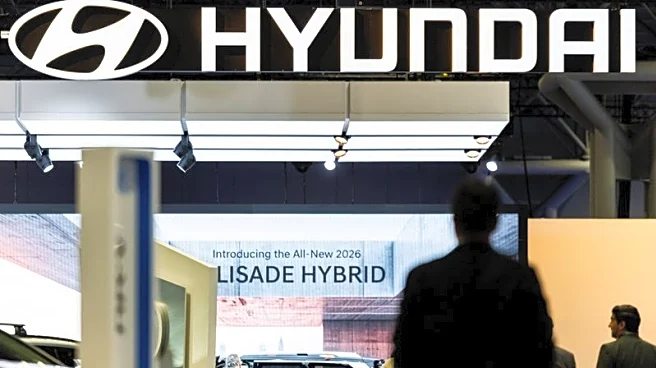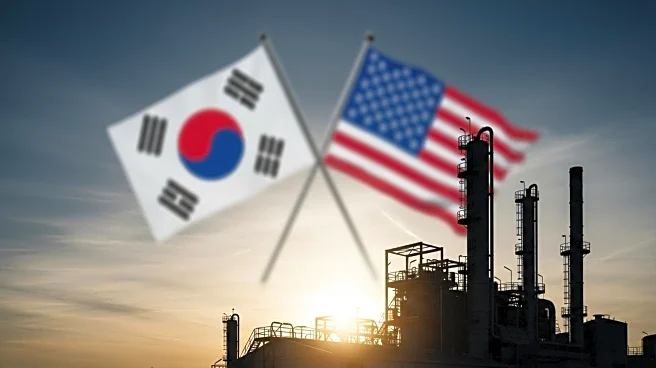What is the story about?
What's Happening?
A recent immigration raid at a Hyundai Motor Group electric vehicle plant in Ellabell, Georgia, has led to the detention of over 300 South Korean nationals. This action has caused significant concern among South Korean companies and executives, who are now questioning the stability and attractiveness of investing in the United States. The raid targeted a joint venture between Hyundai and LG Energy Solutions, which was intended to supply batteries for electric vehicles, including those for Kia. The incident has sparked outrage in South Korea, with images of detained workers causing a stir. The raid is seen as conflicting with President Trump's efforts to attract foreign investment and revitalize American manufacturing. The situation has led to delays in investment projects and has prompted some companies to reconsider their U.S. investment plans.
Why It's Important?
The raid highlights a tension between U.S. immigration enforcement and the need to attract foreign investment, particularly in the manufacturing sector. South Korea is a major trading partner and investor in the U.S., with significant contributions to the American economy. The incident could deter future investments from South Korean companies, which have been pivotal in sectors like automotive and technology. This could impact job creation and economic growth in regions dependent on foreign investments. The raid also underscores the challenges foreign companies face in navigating U.S. immigration laws, which could lead to a reevaluation of investment strategies and potential shifts to other regions like Latin America or Europe.
What's Next?
In response to the raid, some South Korean companies have halted construction on U.S. factory sites and are reconsidering their investment plans. The U.S. government may need to address these concerns to maintain its attractiveness as an investment destination. President Trump has indicated a willingness to facilitate legal immigration processes for skilled workers, which could be a step towards resolving the issue. However, the situation remains delicate, and further immigration enforcement actions could exacerbate tensions. Companies may seek assurances or policy adjustments to ensure their investments are secure and that they can bring in necessary expertise without legal hurdles.
Beyond the Headlines
The raid raises broader questions about the balance between immigration policy and economic strategy. It highlights the ethical and legal complexities of enforcing immigration laws while promoting foreign investment. The incident may prompt discussions on creating more streamlined visa processes for specialized workers, which could benefit both the U.S. economy and foreign investors. Additionally, the situation could influence U.S.-South Korea relations, potentially affecting diplomatic and economic ties.
AI Generated Content
Do you find this article useful?
















